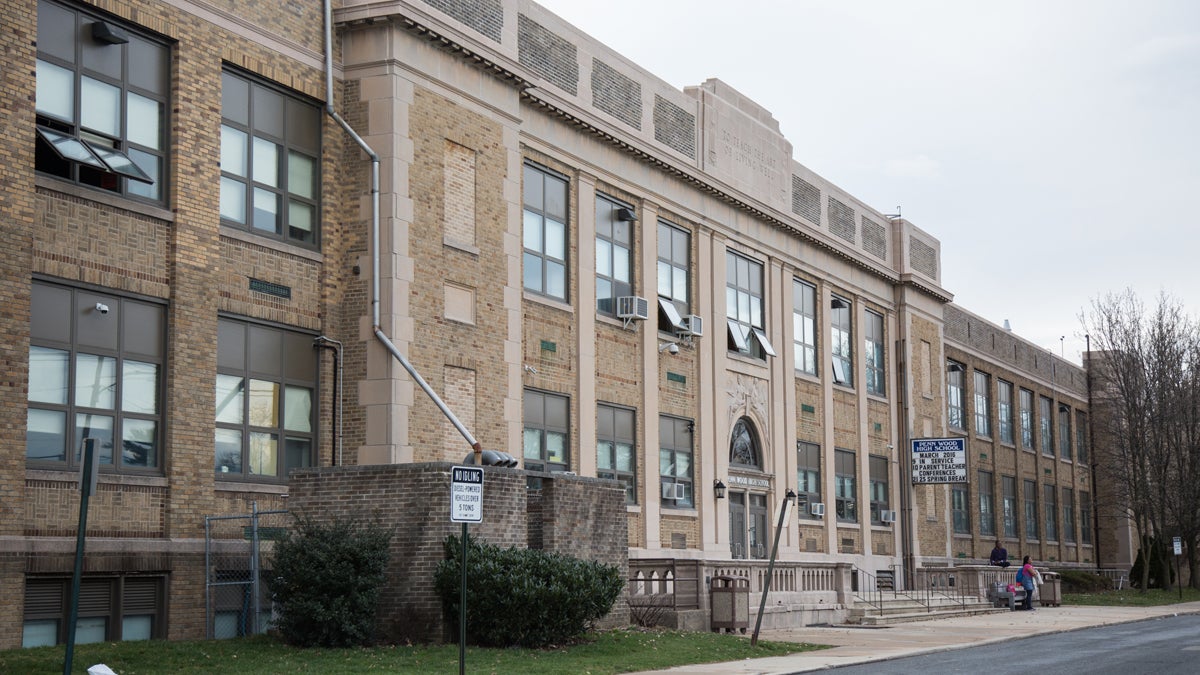I don’t want your school to fail. I want both yours and mine to succeed.

File photo: Penn Wood High School in the William Penn district. (Emily Cohen for NewWorks)
As a mother of three, I could not hear Jameria’s story (“The cold realities of education in a poor Pennsylvania school district,” published April 24, by Kevin McCorry) without feeling sad for children in her position, and frustration with a system that allows such deplorable conditions to exist. And yet, her closing comment suggesting it is because “rich people” don’t want other children to have adequate education or school funding does not sit well with me. I would probably be one of the “rich people” she talks about, and I wish she could know how I really think and feel.
Jameria is right in thinking I want the best education for my children, but that does not mean I want it to be better than her own, or anyone else’s. Because I want my children to succeed does not mean I therefore want others to fail. It is not a ball game with a winning side and a losing side. I want districts and states to figure out how to improve the weaker, poorer schools without taking away from the schools that are now well funded, high scoring, and successfully preparing students for work and advanced education. We all want our schools to perform that way, and to ask successful schools to give up their strengths so that others may have them instead does not advance our youth.
Of course my past informs my present opinions. When I was a kid, my family was neither rich nor poor; we were comfortable but by no means extravagant. We moved many times, and I attended grades 6 through 12 grade in a small Maine town, in public schools. At 15 I was working and saving for college. A Naval ROTC scholarship allowed me to attend Villanova, as I had no other way to afford it. Even with that scholarship, I needed additional jobs to pay room and board because my parents were then struggling and could not help. I met my husband while we were both on active duty in the U.S. Navy; between us we served over 14 years. We have always lived well below our means, saving, spending carefully, and planning ahead.
We had our children later, older than when our parents had children, and I count my blessings every day that we are comfortable, that we have everything we need and most of what we want. I am proud of what we have accomplished, and I teach my children that nothing comes for free. They often hear me repeat what I heard from my own frugal New England parents: Use it up, wear it out, make it do, or do without. They also see me volunteer, donate, and fund-raise for charities.
Still, when I hear stories such as Jameria’s, I do feel a little guilty. But should I? Should I feel guilty that I can provide good opportunities for my kids, better than I had, when my husband and I have worked our whole lives to get where we are? I am not a greedy or selfish person, and I don’t think any parent, of whatever income level or social status, should be faulted for wanting the best for his or her children. If I wanted that the expense of Jameria and her family, then, yes — that would be wrong. But I don’t. I truly want better education for her. I don’t want her or any student freezing in class, afraid to go to school, unable to drink from the water fountain for fear of lead. All of that saddens and angers me. But I ask again; must I feel guilty that my kids and I don’t face that? Must I give up my advantages because not everyone has the same?
There are no simple answers to that question, and that is what I ask Jameria to consider. Consider, if “rich” parents are fighting to keep the funding for their own schools, it’s not because they want Jameria or others to fail or suffer. I think many, and I certainly hope most, are like me: wanting the best for our own kids doesn’t make us cold hearted or unsympathetic to students in struggling districts. But we want a better answer than taking the funding from our schools and seeing our kids lose something we feel we have earned for them.
—
Theresa Foster lives in Bucks County, Pennsylvania.
WHYY is your source for fact-based, in-depth journalism and information. As a nonprofit organization, we rely on financial support from readers like you. Please give today.

